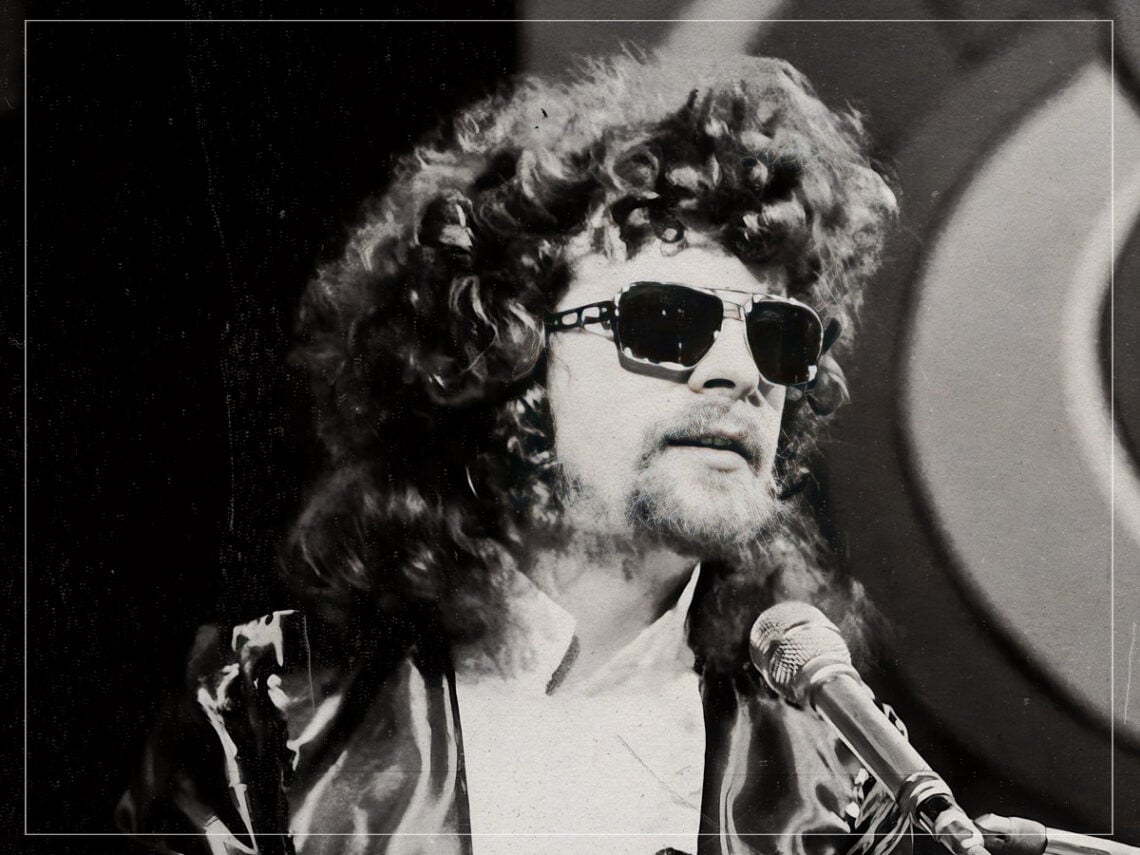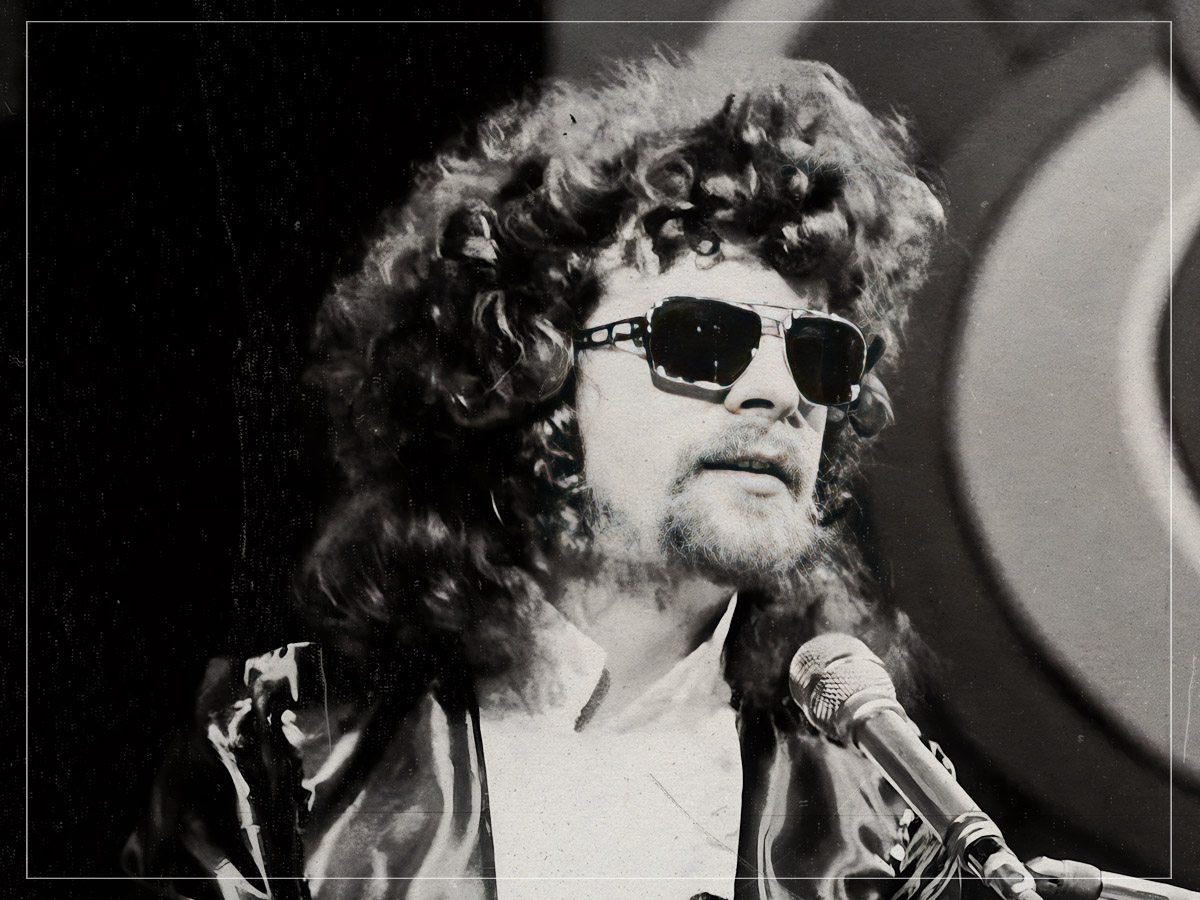
(Credits: Far Out / Alamy)
Mon 13 October 2025 11:34, UK
He had already enjoyed a pretty stellar career, littered with big moments and even bigger names. But Jeff Lynne got to live a dream in the mid-1990s.
The Electric Light Orchestra leader had already made a name for himself in the rock world, collaborating with everyone from George Harrison on his Cloud Nine album to Roy Orbison on his final LP Mystery Girl to Tom Petty on Full Moon Fever to… all three at the same time, plus Bob Dylan, in The Travelling Wilburys. Life was pretty good for Lynne, who had spent much of the 1960s adoring the aforementioned icons.
But then came the call that would put Lynne among the rock and pop music elite: Harrison phoned his old friend, asking him if he would like to produce The Beatles. For one second, imagine what that phone call must have felt like for Lynne. Of course, he was already well acquainted with one quarter of the Fab Four, but now he had apparently received the seal of approval from the remaining members, too. While putting together the initial pieces of the Anthology project, it was decided that the band wanted to re-record some John Lennon demos and repurpose them as new Beatles songs.
There was only one problem: the band’s go-to producer George Martin, who produced nearly everything that The Beatles recorded in the 1960s, was going through problems with his hearing. Fearing that he wouldn’t be able to do the project justice, Martin bowed out, necessitating a replacement. All three remaining Beatles had experience as producers, but Harrison made the call that Lynne should be involved.
“George asked me to do this, and it was the hardest thing I’ve had to do in my life,” Lynne told Rolling Stone. Of course, forgetting Lynne is a fan, the idea of producing The Beatles would have left anyone feeling a tad trepidatious. Add to that just how keen a fan Lynne was, and you have a crippling amount of anxiety ready to squash any ideas one may have. “There was this elation and dread at the same time”. Lynne was given a nearly impossible task: translate the lo-fi home demo of Lennon singing ‘Free As A Bird’ into a Beatles-esque final product.
“I was given a mono one-track cassette tape of John singing the song in 1977,” Lynne adds. One might expect Lynne to be keen to make a first impression, but he fell at that particular hurdle: “I came to the first session with George, and we were late, which was a bad start. Ringo and Paul were already there. All four of us sat down at a table, the first time they’d all been together for about 20 years. They spent a long time talking about the old days, just reminiscing. I was thrilled to bits. It was what I always dreamed of.”
Naturally, the weight of having to be the man behind the mixing desk when it came to producing the most recent Beatles song for the time was a heavy crown to wear. “Some days I thought I was going to get it right, and other days I thought, ‘What did I get myself into?’” Lynne added. Of course, there was the added burden of the manual nature of mixing at the time: “There weren’t computers in those days, so I had to use a little sampler. One night I waited until everyone went home, and I started to work. I got John’s first line in there, nudged it a bit and then pressed John in with my finger, so it went onto the tape in the right place. I did that all the way through the song, fitting him in wherever I could. It would have been much easier if I had ProTools.”
Although he might not have gotten off to the best start, an affirmation from McCartney made it all worth it. “The next morning, Paul came in and was like, ‘Jeff, you did it! Well done.’ He gave me a big hug. It was a relief and a pleasure at the same time.”
Dreams aren’t always completely free of issues. And the weight of having such a moment could have easily flattened out Jeff Lynne. But the truth is, he was far tougher and far grander than he maybe gave himself credit for. He battled against self-sabotage and delivered something truly magnetic.
Related Topics
The Far Out Beatles Newsletter
All the latest stories about The Beatles from the independent voice of culture.
Straight to your inbox.
